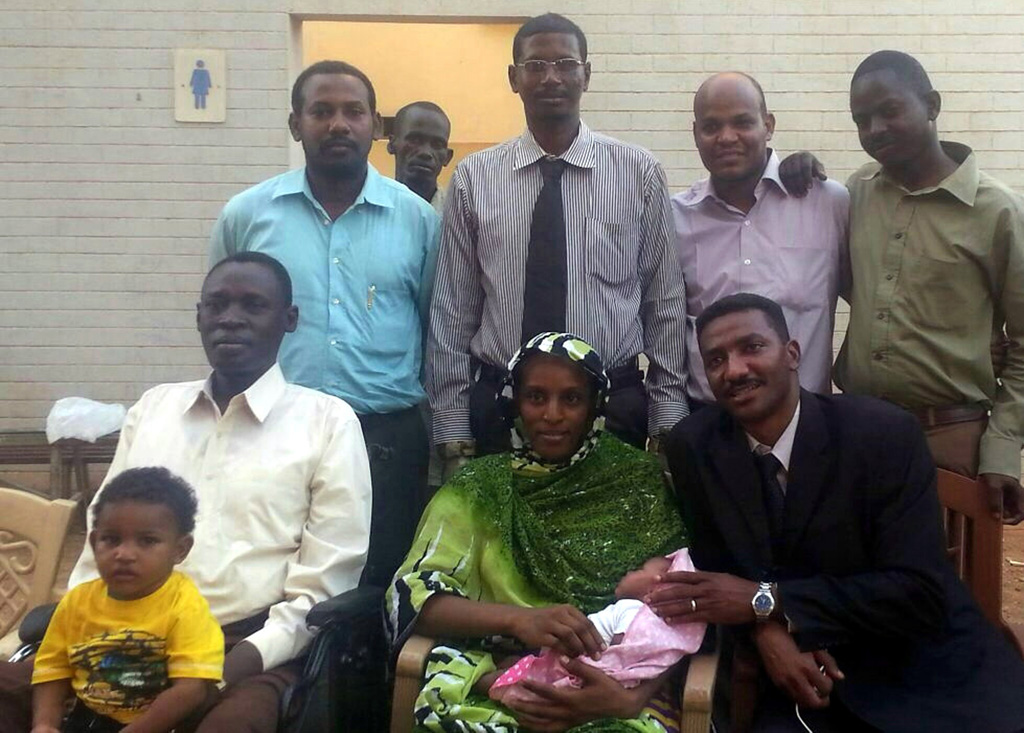Sudan’s Meriam Ibrahim released for a second time
A Sudanese Christian woman whose death sentence for apostasy was overturned is freed again after being detained on accusations of forging travel documents.

Wearing a traditional white and green dress, Meriam Ibrahim, 27, walked out of a Khartoum police station carrying her newborn baby, hours after lawyers said she was ordered to be released.
Ms Ibrahim’s lawyer Sherief Ali Sherief confirmed that she had been released and taken to the US embassy building, awaiting the final green light from the prosecutor.
Mr Sherief said that “the prosecution continues to charge Meriam,” even though he said there was “no legal basis” for the charges. “We hope that our arguments to the prosecutor are accepted,” he said.
Charges of apostasy
Ms Ibrahim had been sentenced to death over charges of apostasy. The daughter of a Muslim father, Ms Ibrahim was raised by her Christian mother.
She married a Christian man, Daniel Wani, who holds American citizenship and is from South Sudan, in a church ceremony in 2011.
The prosecution continues to charge Meriam, even though he said there was no legal basis for the charges. Sherief Ali Sherief, Meriam Ibrahim’s lawyer
Muslim women in Sudan are prohibited from marrying non-Muslims, though Muslim men can marry outside their faith. By law, children must follow their father’s religion.
Sudan’s penal code forbids Muslims from converting to other religions, a crime punishable by death. The court in the capital, Khartoum, had also ordered that Ibrahim be given 100 lashes for having sexual relations with her husband.
The sentence drew international condemnation. Amid an international outcry against the sentence, Ms Ibrahim was acquitted by Sudan’s court of cassation and freed on Monday.
However, she was detained the following day, along with her family, when they tried to leave Khartoum’s airport en route to the United States with what authorities described as forged travel documents.
Shariah law
Sudan introduced Islamic sharia laws in the early 1980s under the rule of autocrat Jaafar Nimeiri, a move that contributed to the resumption of an insurgency in the mostly animist and Christian south of Sudan.
The south seceded in 2011 to become the world’s newest nation, South Sudan. Mr Wani, Ms Ibrahim’s husband, was granted US citizenship when he fled to the United States as a child to escape the civil war, but he later returned.
A number of Sudanese have been convicted of apostasy in recent years, but they all escaped execution by recanting their new faith. Ms Ibrahim’s case first came to the attention of authorities in August, when members of her father’s family complained that she was born a Muslim but married a Christian man.
She insists she was never a Muslim, but was raised as a Christian.